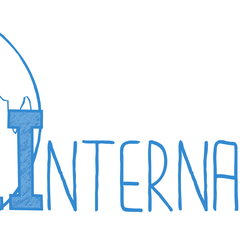
Insulin Pens now on WHO EML: Honoring the Preferences of People with Diabetes
28 Jul 2023, 1:28 p.m. in News & Statements by T1International
In March of 2023, T1International asked its Global Advocacy Network (GAN) to weigh in with their perspectives on usage of insulin pens, including reusable pens with cartridges. Overwhelmingly, GAN members preferred pens over vials, citing numerous reasons, including ease of use to less stigma experienced. T1International compiled these perspectives and included them in its letter to the World Health Organization (WHO) in support of the addition of disposable and reusable pens with cartridges in its 2023 Essential Medicines List (EML). You can find our full letter here.
We are pleased to announce that the 2023 WHO EML, with the executive summary of the 2023 Committee released yesterday, now includes disposable and reusable pens with cartridges for human insulin. You may remember that two years ago, T1International’s advocacy was instrumental in the WHO’s decision to add long-acting insulin analogues in vials and pens to its EML. This week’s decision paves the way for short-acting insulin analogues to be added to the WHO EML in 2025 in both vial and pen preparations.
As we stated in our 2023 letter, we believe that everyone with diabetes should have full choice over the type of insulin and method of delivery that works best for them. For people dependent on insulin, including all people with type 1 diabetes, insulin injections are lifelong and should be as comfortable as possible, physically, emotionally, and mentally, in order for people with diabetes to thrive. We encourage you to read the full letter, including comments from GAN members. One quote that articulates feelings shared by many comes from the parent of a child with diabetes in Panama:
“Many children in Panamá hide their diabetes from schools because they fear being kicked out of school…Pens, which are more discreet and easier to dose and carry, would make their lives and control easier to manage.”
Quality of life is such an essential component to consider in diabetes management because life with diabetes is already so challenging and complicated. If devices exist to make life easier for people with diabetes, they should be available and affordable to all.
With this decision by the WHO to add disposable pens and reusable pens with cartridges for human insulin to its EML, we hope that national healthcare systems will strive to ensure that individuals managing diabetes in their country can live with less fear and more ease when it comes to diabetes management. This includes access to analogue insulins and other supplies and technology that ease the burden of people living with diabetes.
Source: The selection and use of essential medicines 2023: Executive summary of the report of the 24th WHO Expert Committee on the Selection and Use of Essential Medicines, 24 – 28 April 2023. Geneva: World Health Organization; 2023 (WHO/MHP/HPS/EML/2023.01). Licence: CC BY-NC-SA 3.0 IGO.




